第99章 LETTER XVIII(4)
Taipeng is a thriving, increasing place, of over six thousand inhabitants, solely Chinese, with the exception of a small Kling population, which keeps small shops, lends money, drives gharries and bullock-carts, and washes clothes. This place was the focus of the disturbances in 1873, and the Chinese seem still to need to be held in check, for they are not allowed to go out at night without passes and lanterns. They are miners, except those who keep the innumerable shops which supply the miners, and some of them are rich. Taipeng is tolerably empty during the day, but at dusk, when the miners return, the streets and gambling dens are crowded, and the usual Babel of Chinese tongues begins. There are scarcely any Malays in the town.
Mr. Maxwell walks and rides about everywhere unattended and without precautions, but Sikh sentries guard this house by night and day. They wear large blue turbans, scarlet coats and white trousers. There are four hundred and fifty of them, recruited in India from among the Sikhs and Pathans, and many of them have seen service under our flag. They are, to all intents and purposes, soldiers, drilled and disciplined as such, though called "Armed Police," and are commanded by Major Swinburne of the 80th Regiment. There is a half battery of mountain train rifled guns, and many of these men are drilled as gunners. Their joy would be in shooting and looting, but they have not any scent for crime. They are splendid-looking men, with long moustaches and whiskers, but they plait the long ends of the latter and tuck them up under their turbans. They have good-natured faces generally, and are sober, docile and peaceable, but Major Swinburne says that they indulge in violent wordy warfare on "theological subjects." They are devoted to the accumulation of money, and very many of them being betrothed to little girls in India, save nearly all their pay in order to buy land and settle there. When off duty they wear turbans and robes nearly as white as snow, and look both classical and colossal. They get on admirably with the Malays, but look down on the Chinese, who are much afraid of them. One sees a single Sikh driving four or five Chinamen in front of him, having knotted their pigtails together for reins. I have been awoke each night by the clank which attends the change of guard, and as the moonlight flashes on the bayonets, I realize that I am in Perak.
The air is so bracing here and the nights so cool, that I have been out by seven each morning, and have been into Taipeng in the evening. This morning I went to see the hospital, mainly used by the Sikhs, who, though very docile patients, are most troublesome in other ways, owing to religious prejudices, which render it nearly impossible to cook for them. There was one wretched Chinaman there, horribly mangled. He was stealing a boat on one of the many creeks, when an alligator got hold of him, and tore both legs, one arm, and his back in such a way that it is wonderful that he lives. The apothecary is a young Madrassee. One or two cases of that terrible disease known in Japan as Kakke, and elsewhere as Beri-Beri, have just appeared.* We walked also to a clear mountain torrent which comes thundering down among great boulders and dense tropical vegetation at the foot of the mountains, as clear and cold as if it were a Highland stream dashing through the purple heather.
[*Since my visit there have been three fatal outbreaks of this epidemic, three thousand deaths having occurred among the neighboring miners and coolies. So firmly did the disease appear to have established itself, that a large permanent hospital was erected by the joint efforts of the chief mining adventurers and the Government, but it has now been taken over altogether by the Government, and is supported by an annual tax of a dollar, levied upon every adult Chinaman. Extensive hospital accommodation and sufficient medical attendance have also been provided in other stricken localities. In the jail, where the disease was very fatal, it has nearly died out, in consequence, it is believed, of supplying the prisoners with a larger quantity of nitrogenous food. It has been proposed to compel the employers of mining coolies to do the same thing, for the ravages of the disease are actually affecting the prosperity of Larut.]
There are "trumpeter beetles" here, with bright green bodies and membranous-looking transparent wings, four inches across, which make noise enough for a creature the size of a horse. Two were in the house tonight, and you could scarcely hear anyone speak. But there is a blessed respite from mosquitoes.
Major Swinburne and Captain Walker have dined here, and we had a simple dinner of roast mutton, the first that I have tasted for ten months. It is a great treat. One becomes tired of made dishes, consisting chiefly of impoverished fowls, disguised in about twenty different ways.